Undergraduate Course Offerings, Fall 2021
If you have any questions, please contact the undergraduate advisor.
Courses from previous semesters are archived here.
Campus Map - the English/Philosophy building is #46, located in D1
Click an Option to Show Courses by Focus
ENGL 2305 Intro to Poetry: The Immortality of Words and Form
Jenny RobertsonWednesdays, 6:00 - 8:50 PM (Section D02, CRN: 41139)
Mondays, 6:00 - 8:50 PM (Section D05, CRN: 43955)
This course is designed to be both a survey course on a variety of poetic forms, themes, genres, and styles and a focused examination of the earlier influences on and the later influence of Medieval poetry. We will be interacting with poetry from Antiquity (Homer, Catullus, Ovid) and the Medieval period (Old and Middle English sonnets, epics, romances, saint's lives) as well as poetry from the last few centuries (Romantic, Victorian, Modern, Contemporary). The course will be divided into four thematic units: Animals and Nature, Romantic and Fraternal Love, Heroes and Heroines, and Magic Things and People. Each week, we will examine a small collection of poems and work together in class to situate these poems within the course's primary theme (understanding the longevity of influence at work in form, theme, structure, subject matter, central idea, language, spirit, power) and also practice and build our confidence in reading, interpreting, and analyzing poetry.
ENGL 2305 Intro to Poetry
Dr. William WentheAsynchronous
Section D01, CRN: 33006)
In this class we will examine poetry as an art. What painting does for vision, what music does for sound, what dance does for the movement: that is what poetry does for language. Poetry is the art of language. Poetry is the earliest literature, and it is from poetry that the other literary arts have developed—drama, song, rhetoric, fiction, stand-up comedy, and rap. Poetry is important. One of the important things it does is connect a person, an individual—you—to larger orders. Such orders are: the political, the family, the religious, the natural, and so on; including all the ways these orders affect each other. Poetry also explores the individual person; in your greatness (“I contain multitudes,” writes Walt Whitman) and in your smallness (“I'm nobody. Who are you?” writes Emily Dickinson). It seeks words for the wonder, the fear, the strangeness of your own existence (“You are an I,” writes Elizabeth Bishop). Poetry is the oldest literature. Constantly reborn, it thrives today. It flourishes in Ivy League universities; it flourishes in urban streets. In this class we're going to learn to read poems masterfully; and thus, to read anything masterfully. This class will introduce you to the art of poetry, from the oldest poem in our language to very contemporary poems.
This course fulfills the TTU CORE CURRICULUM requirement in CREATIVE ARTS.
Requirements:
The syllabus consists of nine modules containing reading assignments, video lectures,
practice exams and discussion boards. There are no formal written essays for this
course. There will be a multiple-choice midterm and final exam. The main requirement
is that you read, re-read, and carefully pay attention to the assigned poems. Since
there are no scheduled class meetings, "attendance" will mean your focused, assiduous
attention to the poems you read.
ENGL 2307 Introduction to Fiction: Feminist Utopias
Morgan ConnorMondays, Wednesdays, & Fridays, 2:00 - 2:50 PM (Section 014, CRN: 38506)
Mondays, Wednesdays, & Fridays, 3:00 - 3:50 PM (Section 018, CRN: 11718)
In this course, we will examine concepts of heroism as they are revealed by stories, authors, and characters which have thus far been understudied in comparison with more mainstream, less diverse heroes. We will read a variety of comics, fantasy, and science fiction, discussing how they use and transform notions of heroism via representation of marginalized people. How is heroic representation changed when it is not wholly defined by those with traditionally systemic power? In investigating this question, we will come to better understand genre distinctions as well as the notions, portrayals, and receptions of heroism that result from changes in the conventional heroic image.
ENGL 2307 Introduction to Fiction: Gothic Fiction
Ahmed MuhammadTuesdays and Thursdays, 11:00 - 12:20 PM (Section 026, CRN: 11781)
Tuesdays and Thursdays, 2:00 - 3:20 PM (Section 025, CRN: 11776)
In this course, we will be defining fundamental elements of fiction and will explore various techniques and themes. These tools will enable students to describe, analyze, and appreciate the artistry as well as the intellectual, historical, and cultural significance of a number of classic 19th century British novels and novellas as well as recent films that all belong to the Gothic genre. ENGL 2307 aims to provide students with the tools to engage in valid analysis of a body of literature. It will also help students develop an appreciation of how fiction and storytelling in general enable readers to understand themselves and the human experience in a deeper, more compelling way.
ENGL 2307 Introduction to Fiction: Redefining the Hero
Jessie RogersTuesdays and Thursdays, 12:30 - 1:50 PM (Section 027, CRN: 11789)
Tuesdays and Thursdays, 2:00 - 3:20 PM (Section 031, CRN: 11850)
In this course, we will examine concepts of heroism as they are revealed by stories, authors, and characters which have thus far been understudied in comparison with more mainstream, less diverse heroes. We will read a variety of comics, fantasy, and science fiction, discussing how they use and transform notions of heroism via representation of marginalized people. How is heroic representation changed when it is not wholly defined by those with traditionally systemic power? In investigating this question, we will come to better understand genre distinctions as well as the notions, portrayals, and receptions of heroism that result from changes in the conventional heroic image.
ENGL 2307 Introduction to Fiction: Redefining the Hero
Khaleel M. AbusalMonday, Wednesday, & Fridays, 11:00 - 11:50 AM (Section 008, CRN: 11651)
Monday, Wednesday, & Fridays, 12:00 - 12:50 PM (Section 010, CRN: 11671)
This course introduces students to the short fiction genre. Short fiction is probably the most ancient of all literary forms. Short fiction covers many forms like folktales, parables, and fables but the short story as we know it flourished in the 19th and the 20th centuries. The course focuses on the modern form of fiction, the short story. In the course, we will examine the formal components of the short story, and the most important of which is the plot as Edgar Allen Poe argued. We will read a variety of short stories and critically analyze and interpret them. We will explore topics and literary works from diverse viewpoints, backgrounds, and perspectives.
ENGL 2308 Introduction to Nonfiction: Exploring American Counterculture
Sam LittmanMondays, Wednesdays, & Fridays, 9:00 - 9:50 AM (Section 003, CRN: 11971)
Mondays, Wednesdays, & Fridays, 10:00 - 10:50 AM (Section 002, CRN: 11952)
This course introduces students to non-fiction writing during its most exuberant period in American history: the 1960s and 1970s, a time of unprecedented cultural and political upheaval, social liberation, civil rights activism, and tension between war and calls for peace. A variety of new non-fiction modes correspondingly emerged, from the New Journalism movement that featured the writer as a character in his reportage to ‘cinema verite' documentary filmmaking that sought to capture life with minimal intervention by the director. The incomparable Joan Didion's recollections of disillusionment and excess in California during the counterculture movement of the ‘60s and ‘70s will anchor our study of the memoir. Revolutionary journalism will take center stage as we dive into Tom Wolfe's “The Electric Kool-Aid Acid Test” and the ‘Gonzo' style invented by Hunter S. Thompson (“Fear and Loathing in Las Vegas” and “Fear and Loathing on the Campaign Trail ‘72”). We will explore biography/autobiography through “The Autobiography of Malcolm X,” and extend our study of non-fiction literature into the realm of documentary through the ‘fly-on-the-wall' filmmaking style pioneered by D.A. Pennebaker and Frederick Wiseman. It's going be a trip!
ENGL 2308 Introduction to Nonfiction: Food Writing
Zachary OstraffTuesdays & Thursdays, 9:30 - 10:50 AM (Section 005, CRN: 11982)
Tuesdays & Thursdays, 12:30 - 1:50 PM (Section D01, CRN: 43897)
Let's eat. And let's write. And let's do both together. What more could you ask for in a literature course? Food writing is an exciting niche within the big picture of writing. It has history, panache, and contemporary twists. In this course we'll look at food history and how that history is written and presented (Food in History by Reay Tannahill, Botany of Desire by Michael Pollan), we'll read about the journeys that can be taken with food (Alice, let's eat by Calvin Trillin, and Mark Twain's Feast by Andrew Beahrs), we'll look at our individual heritage with food (Tender to the Bone by Ruth Reichl), we'll look at blogs and recipes, we'll even reference reality tv and documentaries, and through it all we'll write and eat, and hopefully enjoy ourselves.
ENGL 2321 Global Literature I: The Epic and the Hero
Dr. Roger McNamaraTuesdays and Thursdays, 12:30 - 1:50 PM
CRN: 40748 (Section 001)
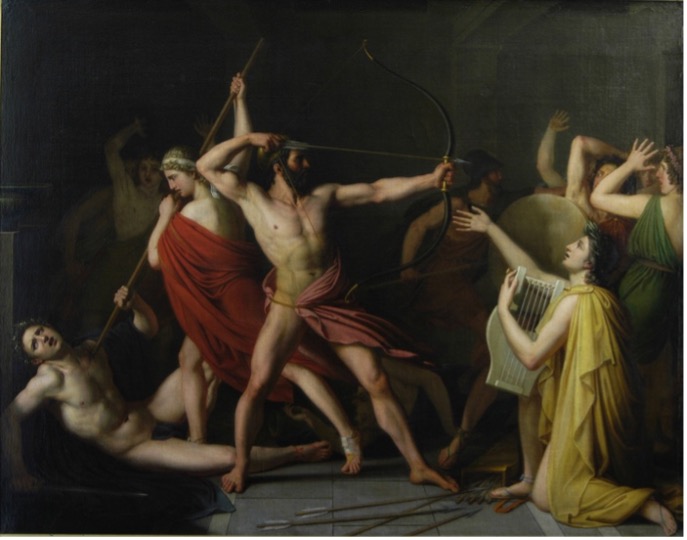 |
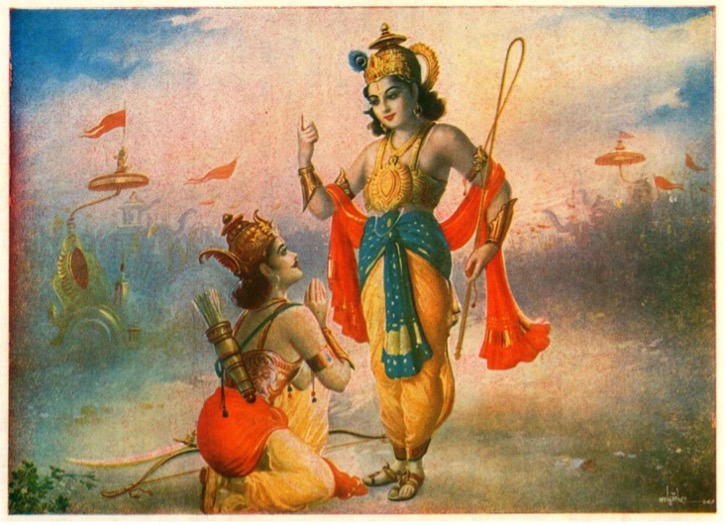 |
This course focuses on the epic tradition across the Ancient and Medieval World. We'll examine the significance of the epic in a variety of cultures—from Ancient Greece and India to Medieval Persia and Europe. We'll also explore the role of the hero—what he symbolizes, the development of his character and virtue, his battle with the internal and external enemies, as well as his limitations and failings.
Tentative Texts
European epics: The Iliad or The Odyssey (Ancient Greece) and The Divine Comedy (by Dante Alighieri, Medieval Italy)
Asian epics: The Bhagavad Gita (Ancient India) and The Shahnama (by Firdausi, Medieval Persia)
ENGL 2325 American Literature I: Survivors
Dr. John SamsonMondays, Wednesdays, & Fridays, 12:00 - 12:50 PM
CRN: 44038 (Section D01)
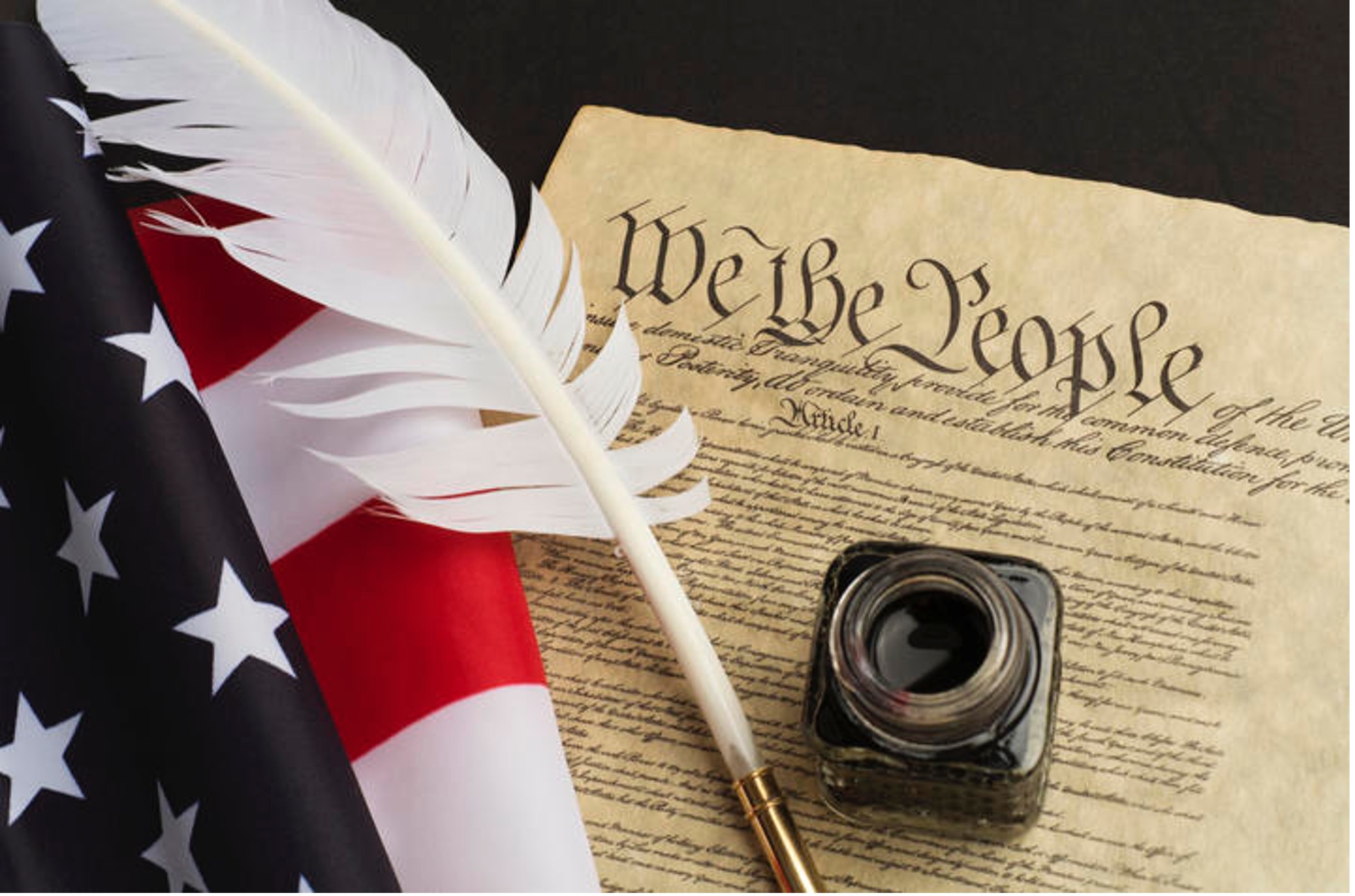
Early American literature contains many stories of those who survived great hardships and difficulties to build a nation and a national literature. Some survived “the starving time” in a new colony; some were women captured by Indians; some surmounted the evils of slavery to become accomplished writers; and others faced the psychological horrors of war and exile. We will read and discuss these and other events of the period (1620 to 1865) in nonfictional narratives, short stories, poetry, and a novel. The course will help students develop their skills in literary interpretation and analysis: to determine what details in a text are significant, to find and develop topics from the text, and to write analytical essays. Authors we will read include William Bradford, Mary Rowlandson, Phyllis Wheatley, Edgar Allan Poe, Frederick Douglass, and Herman Melville.
ENGL 2370 Introduction to Language
Dr. Min-Joo KimMondays, Wednesdays, & Fridays 9:00 - 9:50 AM
CRN: 43932 (Section 001); 44133 (Section D01)

Language is something that we take for granted; just like breathing or walking, almost all of us have some form of language, and we use it every day without ever really thinking about how it actually works. But upon closer inspection, human language turns out to be exceedingly complex and systematic at the same time. So, the question is how and why? This course aims to provide a broad overview of language, focusing on its structure, its origins, and its role in society. Among the questions we'll address are: how do we humans acquire and use language so effortlessly?; what does it do for us?; do different cultures or societies use language differently?; and if so, does language reflect human society and culture as well?
Requirements Fulfilled: Social and Behavioral Sciences Core requirement.
ENGL 2383 Bible as Literature
Dr. David RoachTuesdays and Thursdays, 9:00 - 10:50 AM
CRN: 41937 (Section 001)
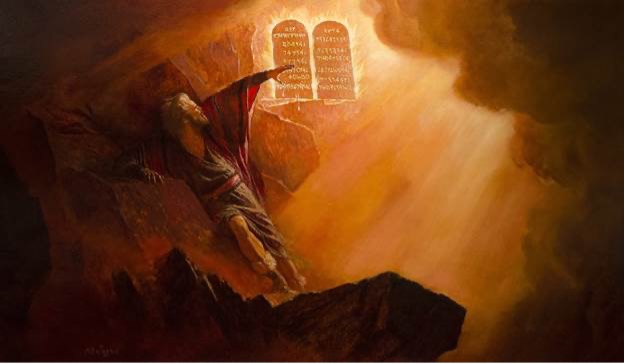
"Till heaven and earth pass," Jesus declared, "not one jot or tittle shall pass from the law," and two thousand years later, the Bible continues to be read, studied, and taught in cultures across the world. Yet the Bible is in fact composed of many different books, and our objective over the course of the semester is to learn about the genres and styles of scriptural writing. We will explore such genres as cosmogony, Jewish epic, history, poetry, wisdom literature, prophecy, gospels, epistles, and apocalyptic literature. We will discuss topics like covenant, grace, sacrifice, redemption, mercy, justice, and service. Examining the Bible's beautiful language, brilliant imagery, and fascinating symbolism offers us an exciting, new way of understanding the most popular book in human history.
ENGL 2388 Introduction to Film Studies
Dr. Ben RogersonMondays and Wednesdays, 2:00 - 2:50 PM
Lecture - Section 160, CRN 39529
Must also sign up for one of the discussion sections listed below
| Discussion Sections - Fridays, various times | ||||
| Section 701 | CRN: 39550 | Section 702 | CRN: 39551 | |
| Section 703 | CRN: 39552 | Section 704 | CRN: 39553 | |
| Section 705 | CRN: 39554 | Section 706 | CRN: 39555 | |

As regular moviegoers and avid binge-watchers, we intuitively respond to the “grammar,” of film. Our pulse quickens when the monster nears its hapless victim; we get lumps in our throats when the hero finally wins the heart of the one s/he loves. But how exactly do films make us laugh, cry, and scream? The course draws on examples from U.S. and global cinema in order to explore the film techniques that produce such complex effects—we'll cover everything from mise-en-scene to cinematography, from editing to sound. Then we will build on those fundamentals to consider different modes of cinema such as narrative, documentary, and experimental. Ultimately, the course asks what distinguishes film from all the other arts, and what makes this “Seventh Art” at once so conceptually rich and so potentially deceptive. Popcorn not included.
ENGL 3302 British Literature Before 1066: Learning and Literature in Early Medieval England
Dr. Brian McFaddenThursdays, 6:00 - 8:50 PM
CRN: 43976 (Section D01)
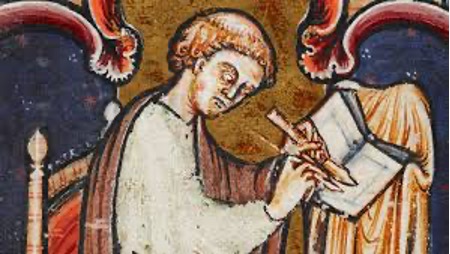 This course will examine three major figures and movements in early medieval England
to analyze how the scholarly translation and transmission of early texts affected
the English literary world. The first section of the course will look at the age of
Bede and representative Old English and Anglo-Latin texts from the eighth to the mid-ninth
centuries; it will include Bede's Ecclesiastical History of the English People, Gildas's On the Fall of Britain, the Life of St. Wilfrid, The Life of St. Cuthbert, and The Life of St. Ceolfrid, as well as the Liber Monstrorum (Book of Monsters), Beowulf, and The Voyage of St. Brendan. The middle section of the course will look at the impact of the reign of Alfred
the Great and his translation project on English letters; readings will include selections
from Boethius's Consolation of Philosophy, Augustine's Soliloquies, and Gregory the Great's On Pastoral Care, and selected Psalms, in addition to Asser's Life of Alfred and the Anglo-Saxon Chronicle. The last section of the course will examine the Benedictine Reform of the late tenth
and early eleventh centuries, with its focus on increasing Latin learning and language
skills in the monastic community, as well as translations and/or compositions in English
for the purpose of preaching. We will examine homiletic and social works of Ælfric
and Wulfstan, as well as adapted and translated scholarly and scriptural texts such
as Judith, The Letter of Alexander to Aristotle, Physiologus, the Exeter Book Riddles, the Wonders of the East, The Wanderer, The Seafarer, and Dream of the Rood. Course requirements will be a midterm examination, a final examination, three response
papers, and an annotated bibliography with a short explanatory essay.
This course will examine three major figures and movements in early medieval England
to analyze how the scholarly translation and transmission of early texts affected
the English literary world. The first section of the course will look at the age of
Bede and representative Old English and Anglo-Latin texts from the eighth to the mid-ninth
centuries; it will include Bede's Ecclesiastical History of the English People, Gildas's On the Fall of Britain, the Life of St. Wilfrid, The Life of St. Cuthbert, and The Life of St. Ceolfrid, as well as the Liber Monstrorum (Book of Monsters), Beowulf, and The Voyage of St. Brendan. The middle section of the course will look at the impact of the reign of Alfred
the Great and his translation project on English letters; readings will include selections
from Boethius's Consolation of Philosophy, Augustine's Soliloquies, and Gregory the Great's On Pastoral Care, and selected Psalms, in addition to Asser's Life of Alfred and the Anglo-Saxon Chronicle. The last section of the course will examine the Benedictine Reform of the late tenth
and early eleventh centuries, with its focus on increasing Latin learning and language
skills in the monastic community, as well as translations and/or compositions in English
for the purpose of preaching. We will examine homiletic and social works of Ælfric
and Wulfstan, as well as adapted and translated scholarly and scriptural texts such
as Judith, The Letter of Alexander to Aristotle, Physiologus, the Exeter Book Riddles, the Wonders of the East, The Wanderer, The Seafarer, and Dream of the Rood. Course requirements will be a midterm examination, a final examination, three response
papers, and an annotated bibliography with a short explanatory essay.
ENGL 3307 Eighteenth-Century British Lit: Eighteenth-Century Identities
Dr. Marta KvandeTuesdays and Thursdays, 12:30 - 1:20 PM
CRN: 13449 (Section 001), 35480 (Section D01)
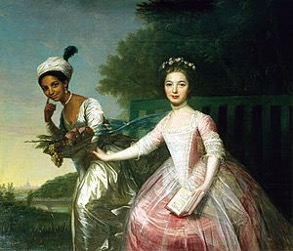 A lot changed in eighteenth-century Britain, and as a result, the ways people thought
about their identity changed, too. In this class, we'll look at the ways literature
wrestled with nation, race, gender, and identity. For one thing, Britain itself came
into being as the union of England, Wales, Scotland, and eventually Ireland. This
Britain also developed overseas colonies – and lost some of them – and turned itself
into an empire trading all over the globe. This global trade, in turn, included the
business of buying and selling people – the transatlantic slave trade – and as that
trade grew, Britons developed beliefs about skin color to justify their acts. The
economic changes brought about by increased trade also affected women's roles and
proper behavior. We'll read literary texts in which writers think through what nation,
race, and gender mean. What did it mean to be British as Britain came to see itself
within a larger world? What did skin color mean when some people were enslaved and
some were not? What did it mean to be a man or a woman when the understanding of what
made the sexes different was changing?
A lot changed in eighteenth-century Britain, and as a result, the ways people thought
about their identity changed, too. In this class, we'll look at the ways literature
wrestled with nation, race, gender, and identity. For one thing, Britain itself came
into being as the union of England, Wales, Scotland, and eventually Ireland. This
Britain also developed overseas colonies – and lost some of them – and turned itself
into an empire trading all over the globe. This global trade, in turn, included the
business of buying and selling people – the transatlantic slave trade – and as that
trade grew, Britons developed beliefs about skin color to justify their acts. The
economic changes brought about by increased trade also affected women's roles and
proper behavior. We'll read literary texts in which writers think through what nation,
race, and gender mean. What did it mean to be British as Britain came to see itself
within a larger world? What did skin color mean when some people were enslaved and
some were not? What did it mean to be a man or a woman when the understanding of what
made the sexes different was changing?
English 3308 Studies in Nineteenth-Century British Literature: Romanticism
Dr. Marjean D. PurintonMondays and Wednesdays, 3:00 - 4:20 PM
CRN: 35481 (Section D01)
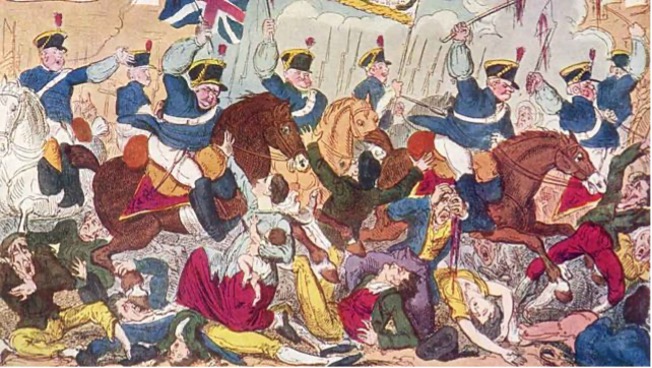 The British Romantic Period (1780-1830) was a time of social upheaval, political change,
religious uncertainty, familial disruptions, class destabilizations, scientific and
educational revolutions, explorations, commercialism, industrialization, and colonial
activity. At the heart of all tensions was the question of human rights—for women,
for slaves, for the working poor, for the disabled, for the elderly, for the colonized.
The British Romantic Period (1780-1830) was a time of social upheaval, political change,
religious uncertainty, familial disruptions, class destabilizations, scientific and
educational revolutions, explorations, commercialism, industrialization, and colonial
activity. At the heart of all tensions was the question of human rights—for women,
for slaves, for the working poor, for the disabled, for the elderly, for the colonized.
It was a revolutionary time when literature challenged and championed the prevailing attitudes, customs, laws, and lifestyles. This era reflects remarkable transformations that underpin both modern and postmodern thought, and you will be amazed as the connections between Romanticism and contemporary culture and writing.
We will survey representative and diverse literary selections from British Romanticism that address the period's historical and cultural issues. Our learning activities will include secondary-source discovery activities, short reflection essays, a take-home final essay, and discussion generated by an engaged learning community informed by feminist pedagogy.
ENGL 3312 Film History: Desiring Cyborgs, Malfunctioning Robots, and Evil A.I.s: The Posthuman in Global Sci-Fi
Dr. Fareed Ben-YoussefThursdays, 6:00 - 8:50 PM
CRN: 43977 (Section D01)
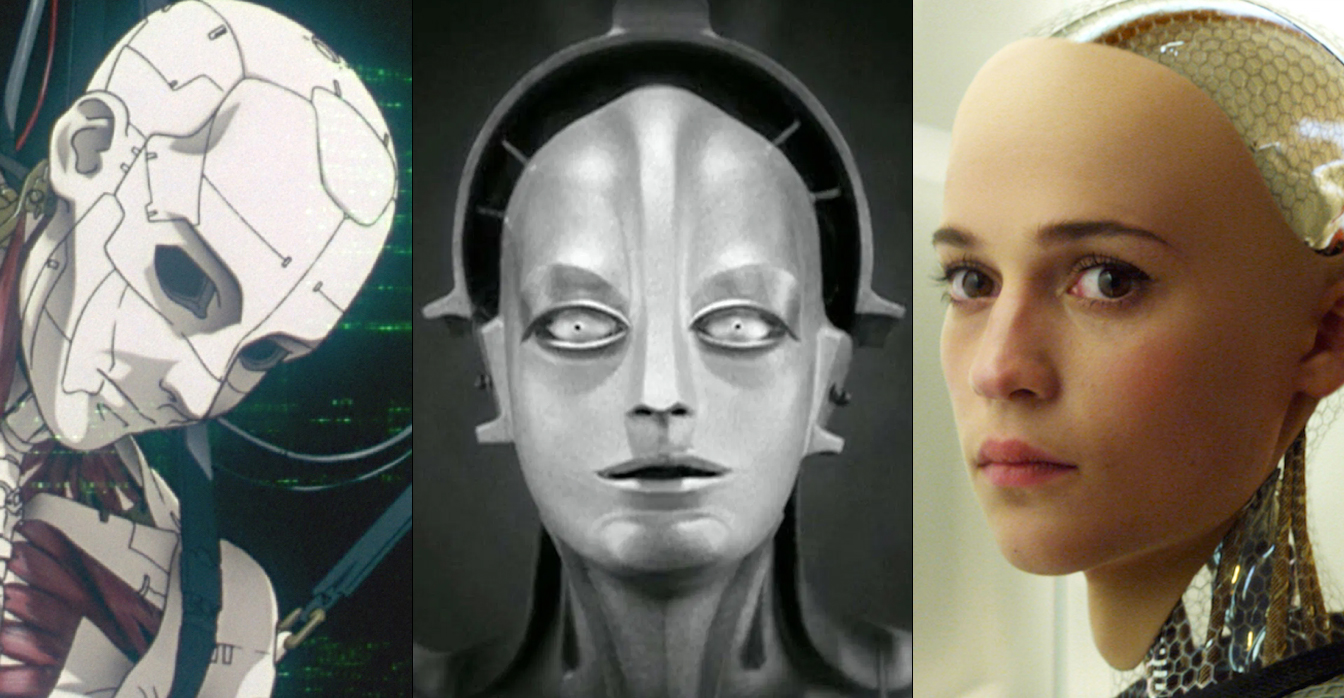
This global science fiction course explores what it means to be human. Offering poignant portrayals of emerging fragility, desire, and sentience from artificial beings, science fiction media often explores if machines can feel. In Stanley Kubrick's 2001: A Space Odyssey (1968), a malevolent artificial intelligence (A.I.) takes command of a spaceship and an astronaut removes his digital brain, piece by piece. The once terrifying A.I. cries out: “My mind is going!” In Spike Jonze's Her (2013), a man falls in love with his Siri-like digital assistant. Slowly, they grow apart as the disembodied voice connects with other people and other machine minds. In Hirokazu Kore-eda's Air Doll (2009), a sex doll comes alive to a new world of sensation—to both pain and to pleasure. Using such films, this course asks: what do our growing emotional bonds with technology tell us about our capacity for empathy? How are we beginning to fuse with our machines, becoming a transhuman or posthuman species?
To answer these questions, we position such works against ongoing debates in posthumanism, disability studies, A.I., and philosophy of mind. The films, comic books, and video games featured in this course offer a thorough introduction to global science fiction. Crossing national boundaries deepens our understanding of how perceptions on the relationship between the animate and the inanimate are shaped by cultural norms. Students will ultimately develop the tools to create persuasive, analytical, and interdisciplinary research papers that investigate the increasingly porous boundary between humans and machines.
The course will feature scientists and artists as guest speakers.
Note: Enrollment is now open to all online students. On-site students will only be able to enroll 30 days before classes start. If you are on-site and interested in enrolling, please email the instructor (fbenyous@ttu.edu). He will send you a reminder when enrollment opens up to the general student population.
ENGL 3324 Nineteenth-Century American Literature: The American Renaissance
Dr. John SamsonMonday, Wednesday, & Fridays, 10:00 - 10:50 AM
CRN: 41941 (Section D01)
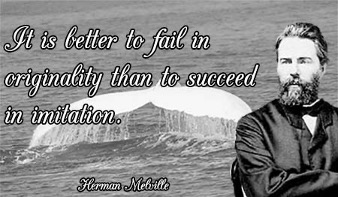
In the American Renaissance major writers attempted to create a new, distinctly American literature, one not in imitation of British or European models. The course will focus on classic works of the period (1830-1865), classic because they engage many of the major issues of their (and our) time—religion and metaphysics, social class and identity, women's roles and rights, racism and slavery, democracy and tyranny. The texts also represent various literary genres, such as essay, narrative, short story, novel, and poetry. The course will help students develop their skills in literary interpretation and analysis: to determine what details in a text are significant, to find and develop topics from the text, and to write analytical essays. Authors we will read: Emily Dickinson, Frederick Douglass, Ralph Waldo Emerson, Nathaniel Hawthorne, Herman Melville, Edgar Allan Poe, and Walt Whitman.
ENGL 3335 Classical and Medieval World Literature: Augustine, Boethius, and Medieval English Literature
Dr. Brian McFaddenWednesdays, 6:00 - 8:50 PM
CRN: 43980 (Section D01)
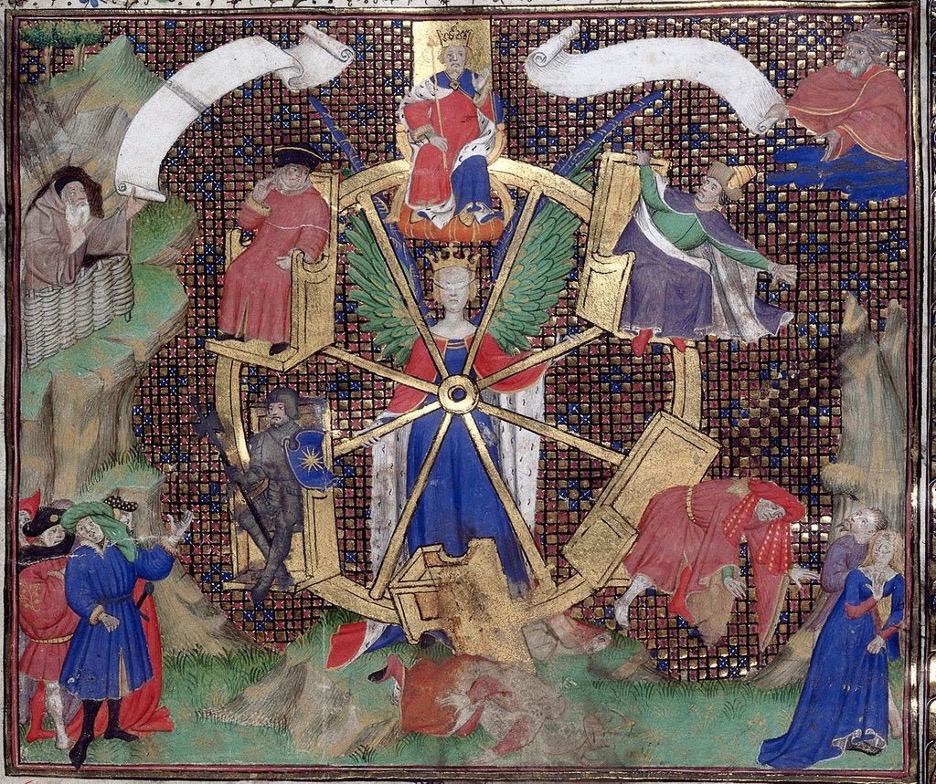 It is no exaggeration to say that two of the most influential thinkers in the Middle
Ages were St. Augustine of Hippo and St. Severinus Boethius; their use of philosophy
to illuminate faith was certainly important in theological and philosophical circles,
but their ideas also found their way into the literature of the age. In this course,
we will examine their ideas as they appear in several medieval English texts. Our
philosophical sources will be Augustine's Confessions, On Christian Doctrine, and City of God (selections) and Boet
It is no exaggeration to say that two of the most influential thinkers in the Middle
Ages were St. Augustine of Hippo and St. Severinus Boethius; their use of philosophy
to illuminate faith was certainly important in theological and philosophical circles,
but their ideas also found their way into the literature of the age. In this course,
we will examine their ideas as they appear in several medieval English texts. Our
philosophical sources will be Augustine's Confessions, On Christian Doctrine, and City of God (selections) and Boet
hius' Consolation of Philosophy; our Old English texts will include selections from the Exeter Book; homilies and
sermons from Ælfric and Wulfstan, as well as the anonymous collections in Bodley 343
and the Vercelli Book; Beowulf; Wonders of the East; and the Letter of Alexander to Aristotle, and the translation of the Consolation by Alfred the Great. We will also look at Chaucer's Boece, Troilus and Criseyde, and selections from The Canterbury Tales.
ENGL 3342 Travel, Migration, and Literature: The Return of the Prodigals
Dr. Roger McNamaraTuesdays and Fridays, 9:30 - 10:50 AM
CRN: 43956 (Section 001)
 There is plenty of literature about immigration, of people leaving their beloved homelands
and traveling to new countries either as refugees, for better jobs, or to further
their education. However, this course will focus on the literature about immigrants
and their descendants returning home. In some cases, these are real homelands—when
the children of immigrants to the U.S. return to Sri Lanka. In other cases, these
homelands are imagined. For example, when descendants of slaves (Black Africans) and
indentured laborers (Indians) return to Nigeria or India. What is the experience of
these children and the descendants—or “prodigals”—who return home? How do they interact
with the people who have remained in their places of origin? Are they “insiders” returning
to the “motherland” or are they always “outsiders” who are “Westernized”? And why
do they return home? Is it a return to their roots, to help what they think to be
impoverished nations and people, or for mundane and regular jobs.
There is plenty of literature about immigration, of people leaving their beloved homelands
and traveling to new countries either as refugees, for better jobs, or to further
their education. However, this course will focus on the literature about immigrants
and their descendants returning home. In some cases, these are real homelands—when
the children of immigrants to the U.S. return to Sri Lanka. In other cases, these
homelands are imagined. For example, when descendants of slaves (Black Africans) and
indentured laborers (Indians) return to Nigeria or India. What is the experience of
these children and the descendants—or “prodigals”—who return home? How do they interact
with the people who have remained in their places of origin? Are they “insiders” returning
to the “motherland” or are they always “outsiders” who are “Westernized”? And why
do they return home? Is it a return to their roots, to help what they think to be
impoverished nations and people, or for mundane and regular jobs.
In exploring this literature, we'll look at prodigals situated in countries ranging
from the U.S. and the U.K to Nigeria, India, and Sri Lanka. We'll conclude with a
text that explores “prodigals” in science fiction.
ENGL 3351 Creative Writing: Fiction
Dr. Katie CorteseTuesdays and Thursdays, 2:00 - 3:20 PM
CRN: 13628 (Section 004)
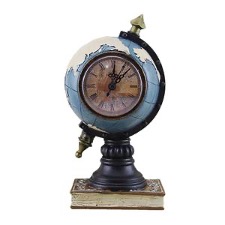 “When you read a short story, you come out a little more aware and a little more in
love with the world around you. What I want is to have the reader come out just 6
percent more awake to the world.” – George Saunders
“When you read a short story, you come out a little more aware and a little more in
love with the world around you. What I want is to have the reader come out just 6
percent more awake to the world.” – George Saunders
This course is for people who like to read and write stories, and want to share their own work and critique the work of others in a large-group format. In addition to writing short works of fiction, we'll read and discuss stories and craft essays by such authors as Roxane Gay, Tommy Orange, Randa Jarrar, Jhumpa Lahiri, Gish Jen, and more. As we learn to read, write, and respond to short stories, we'll broaden our understanding of what it means to be human in a diverse, changing, and interconnected world.
Required Texts: New Micro: Exceptionally Short Fiction ed. by James Thomas and Robert Scotellaro & Bird by Bird by Anne Lamott.
This course fulfills the multicultural requirement.
ENGL 3360 Exploring Literacies
Dr. Jennifer NishWednesdays, 6:00 - 8:50 PM
CRN: 13669 (Section 001); 35495 (Section D01)
In this class, we will use readings, class discussion, and writing assignments to explore what literacy is, how it works, and why it matters. You will complete three writing projects related to the course theme as well as a series of essays in which you reflect on your learning in the course.
Although some people use “literacy” to refer to an individual person's ability to read and write at a basic level, scholars of literacy have argued that it not so easy to define literacy as the ability to translate letters on a page into symbols and sounds, and vice versa. Literacy is complex and involves many different practices that we use to understand the world and our place in it.
Along with our investigation into what literacy means, we'll explore different types of literacy and the various ways that people learn and use literacies. Literacy isn't just taught in school. Many different forms of literacy education take place outside the classroom through families, communities, and workplaces.
Finally, we will talk about why literacy matters. Throughout the course, you will read about the ways that literacy practices are shaped by values, beliefs, and norms. Some language practices are praised and encouraged, while others are devalued. Our ideas about good and bad uses of language shape and are shaped by the ways that our societies and communities are structured. These ideas about literacy, and particularly about the value of different language and literacy practices, affect people's opportunities in life and their engagement with the world around them.
ENGL 3362 Rhetorical Criticism
Dr. Ken BaakeThursdays, 6:00 - 8:50 PM
CRN: 276951 (Section 001); 39484 (Section D01)
This is a class that looks at the history of rhetoric, how speakers and writers have developed arguments from Classical Greek and Roman times to the present. Aristotle defined rhetoric as the art of finding the best available means of persuasion. For the Greeks rhetoric was primarily oral, although it is obviously found in all forms of human communication—especially writing and visual media. In this course we will survey of rhetorical theory from the Sophists through Aristotle and fellow Greeks, Romans, Medieval theologians, Enlightenment scholars and others to 20th century thinkers. We will consider everything from Cicero's blistering attack on a fellow countryman accused of conspiracy in first century B.C.E. Rome to Dr. Martin Luther King's speech proclaiming his dream for civil rights in 20th century America. The class will cover all aspects of rhetoric, but focus mainly on invention, arrangement, and style. We will study how rhetoric functioned in these historic periods and how it functions today.
Students will post reading responses to Blackboard, engage in practice developing arguments using Classical techniques, and conduct a research project.
ENGL 3362 Rhetorical Literacy/Criticism Rhetoric – Sensory Rhetoric: An Unconventional Guide to Changing the World
Dr. Lisa L. PhillipsTime: TBD
CRN: TBD
This course will interrogate the trust we hold in our senses in response to the course's driving questions: How do we persuade with the senses? How do our senses persuade us? What is the relationship between “truth” and the senses; fact and the senses; culture and the senses; data and the senses?
The work of the senses is rhetorical and is informed by culture and ideology. Sense is conceptualized as meaning making, but what we see, hear, and smell is mediated by what we have been persuaded and enculturated to believe as correct. What looks, sounds, smells, tastes, or feels good to one person might be repugnant to someone else. This class will explore the how and why of sensory rhetorics – how we talk about them, how we conceptualize them, and how we represent them – while examining how such rhetorics provide embodied metaphors for everything from knowing (e.g., knowing-as-seeing) to characterizing something negative (e.g., that food stinks).
ENGL 3363 Introduction to Science Writing
Dr. Scott WeedonAsynchronous
CRN: 43864 (Section D01)
Science is the systematic study, documentation, and prediction of our universe. In order for scientists to be heard and for scientific knowledge to be believed, scientists have to communicate their findings, they have to write. The necessity of communication, collaboration, and persuasion mean that science is a deeply social activity. Scientific language does powerful and important work in our world, making trustworthy claims about what is valuable, safe, clean, better, concerning, and factual. Professionals who write about science take on a great responsibility for shaping how others will understand or adopt ideas and technologies.
The course examines two modes of science communication:
- How scientists as professionals and researchers have to present problems, methods, data, and findings to disciplinary and interdisciplinary audiences through the genres of their field.
- How scientists as professionals and researchers have to explain and contextualize problems, methods, data, and findings to publics and non-expert audiences through genres such as press releases, journal articles, press conferences, and visual artifacts.
As an asynchronous course, the Fall 2021 version of ENGL 3363 allows students to engage with the class on their own weekly schedule and have the benefit of one-on-one guidance from the instructor.
ENGL 3365 Professional Report Writing
Dr. Rich RiceMondays and Wednesdays, 2:00 - 3:20 PM
CRN: 39969 (Section D04)
This course is an opportunity to prepare for the kinds of writing you will do in your future work, whether in the private or public sector, in for-profit or non-profit ventures. While some forms of reporting are standardized in an industry or field, reporting practices can vary significantly and change over time. Our course will explore specific genres and conventions for report writing, but more importantly will encourage you as writers to think “rhetorically” about the reporting you do. As you write you will need to consider the goals and objectives of your reporting, the audience for your writing, their expectations for your writing, and so on.
ENGL 3367 User Experience Research
Dr. Jason ThamWednesdays, 6:00 - 8:50 PM
CRN: 13775 (Section 001), 41932 (Section D01)

Do you remember the last time you encountered a confusing interface––a set of revolving doors, furniture assembly instructions, shopping mall directories, restaurant menus, or airport signage? Our experience with everyday occasions is inevitably shaped by the usability and user experience (UX) with these interfaces. As technical communicators participate in the design process of user-facing products, knowledge of usability and UX research is necessary.
This course introduces students to foundational principles and methods of UX research and prepares them to perform basic usability testing of user-facing documents. Students will explore and practice user research and usability testing, human-centered design, and digital prototyping. Upon completion of this course, students should feel confident about:
-
- Constructing rigorous and validating UX and usability test plans
- Practicing a variety of approaches to researching user experiences and goals
- Analyzing user and usability data in appropriate ways
English 3368 World Wide Publishing of Technical Information
Dr. Craig BaehrTuesdays, 6:00 - 8:50 PM
CRN: 37874 (Section 001), 35496 (Section D011)
This undergraduate-level course provides an overview of the practical and theoretical aspects of designing effective Web sites and online content. Specifically, our work will focus on process planning, content development, site structure, navigation, visual design, interface design, usability, and accessibility. The course will cover practical skills with various content management software tools and scripting languages, including HTML, CSS, and JavaScript. The course address contemporary approaches and theories related to digital literacy, user experience, and technology to broaden our study of Web development as a technical communication specialization. Assignments will include developing a portfolio, two scripting exercises, and a Web site project.
ENGL 3371 How Language Works
Dr. Min-Joo KimMondays, 6:00 - 8:50 PM
CRN: 35024 (Section D01)
Have you ever thought about why you cannot start an English word with an “n” and a “t” sound co-occurring side by side even though you can end one with them (e.g., tent)? Also, have you ever thought about why English adjectives almost always occur before the noun they modify (e.g., a big house), but their Spanish counterparts almost always occur after the noun (e.g., una casa grande)? Additionally, have you ever wondered why, when someone says “It's getting late” to you, they mean ‘you need to leave now'? If you're curious about any of these, then this course is for you! In this course, we'll make an introduction to the fascinating subject of linguistics, which is the scientific study of human language. Our primary goal will be to learn about what language is, and how language systems work. No prior knowledge of linguistics will be required, and students of any major or minor are welcome to enroll.
ENGL 3388 Film Genres: ‘A Beautiful Ending'
Dr. Scott BaughTuesdays and Thursdays, 3:30 - 4:50 PM
CRN: 40766 (Section D01)
 |
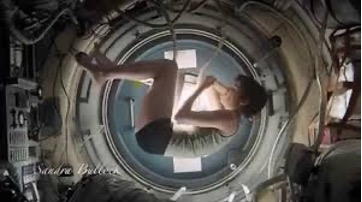 |
What makes the conclusions of some stories so satisfying? Sometimes their endings are intricate & puzzled, other times simple but pure, at times beautiful. Hollywood has standardized the ‘happy ending,' too often as corny as it is conventional—predictable, strangely already familiar, yet affirmative. Surely, how we understand the end of a film reveals as much about us as it does that story. This course, conducted online, uses questions about narrative, genre, and conclusions in order to offer an introduction to undergraduate film/media studies with a steep learning curve to consider how the Classical Paradigm operates in contemporary fictive-narrative movies. Our movies will likely include Nomadland, Into the Wild, Nostalghia, Y Tu Mamá También, Masculine Feminine, The Tree of Life, Crash, Gravity, Inception, Interstellar, Ready Player One, Scott Pilgrim, Tron, Her, The Revenant, & more.
ENGL 3389 The Global Short Storyt
Dr. Nesrine ChahineMondays, Wednesdays, & Fridays, 9:00 - 9:50 PM
CRN: 38640 (Section D01)
In this course we will read short stories by international authors from Egypt, Iraq, Nigeria, the UK, the US, and other nations. We will focus on the idea of “global” as it relates to notions of universality, economic and political inequality, gender dynamics, cultural exchange, and a long history of trade as well as imperial conquest among nations. Possible readings may include short stories by Abdel Rahman al-Sharqawi, Laila Lalami, Youssef al-Sharouny, Chimamanda Ngozi Adichie, China Miéville, and Hassan Blasim among others.
Prerequisites: 6 hours of 2000-level English courses. Short stories around the world. Writing required. Fulfills Multicultural requirement.
ENGL 3390 Literatures of the American Southwest
Dr. Sara SpurgeonTuesdays, 6:00 - 8:50 PM
CRN: 35485 (Section 001), 38641 (D01)
This course introduces students to a variety of texts from the region currently referred to as the American Southwest. We will explore the Southwest through contemporary Native American fiction, early and recent Anglo American adventure writing, Mexican American poetry and non-fiction, a film, and some classic Southwestern nature writing. Some questions we will consider as we read include: What common threads run through these works? How do different cultures describe the landscape of the Southwest? The relationship they feel exists between themselves and the natural world? Between themselves and the other cultures of this region? What sort of literary devices do authors utilize? We will attempt to answer these questions through lectures on the readings as well as the history of the region, class discussions, and a series of short, close reading analytical Worksheets.
English 4301 Studies in Selected Authors: Jane Austen and Mary Shelley
Dr. Marjean D. PurintonWednesdays, 6:00 - 8:50 PM
CRN: 43981 (Section D01)
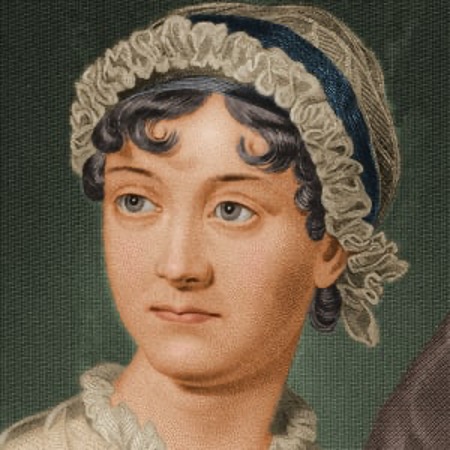 |
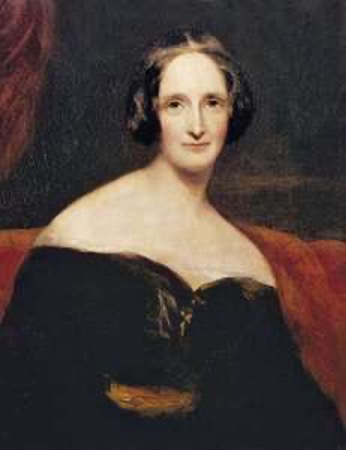 |
Austen and Shelley were shaped by similar cultural and gender restrictions, and both responded to those strictures in unconventional ways. In this course, we will examine the fascinating lives and literature of these two remarkable women. Austen has often been cast as a respectable “old maid,” and Shelley has been portrayed as a promiscuous woman who engaged in “free love.” Let's see whether we can confound these pejorative and incomplete understandings of these women.
We will explore the ways their writings engaged with the revolutionary and gender politics of the Romantic age. Both women's writings were inflected with gothic trappings, and both writers were iconoclastic in their treatment of woman's place in the world.
We will read short fiction by both women, Austen's Lady Susan and Shelley's Mathilda. We will read their novels, Austen's Northanger Abbey and Mansfield Park and Shelley's Frankenstein and Faulkner. We will watch BBC adaptations of their fiction.
Our learning activities will include discovery activities, short, primary-text-based essays, an analysis of an extra-literary resource, and discussions generated by an engaged learning community informed by feminist pedagogy.
ENGL 4311 The Poetry of Science: Lucretius to Rilke
Dr. Ryan HackenbrachtMondays, Wednesdays, & Fridays, 9:00 - 9:50 AM
CRN: 14724 (Section 001)
This course examines the poetry of science from its classical beginnings to the Victorians. In the first century b.c., the Epicurean philosopher Lucretius refitted poetry into a vehicle for scientific inquiry and discovery. Though a Lucretian method underlies major works like Tennyson's In Memoriam and Donne's metaphysics, the Poetry of Science is not a canonical genre, much less a recognized tradition. Our task, then, is to correct this critical aporia. We will map the tradition's countours, chart its qualities, and explore the conceptual tools it uses to bridge the divide between physics and aesthetics. That divide was traversed more easily in antiquity, as the Marxist critic Georg Lukács reminds us, when the “hypostasy of aesthetics into metaphysics” (Theory of the Novel 38) ensured poetry was yoked to science, and vice-versa. What remains is to trace that tradition into subsequent periods—the Middle Ages, Renaissance, and Victorian era—as this course aims to do.
ENGL 4313 Studies in Fiction: World Fabulation from Metamorphosis to Science Fiction
Dr. Bruce ClarkeThursdays, 6:00 - 8:50 PM
CRN: 40754 (Section D02)
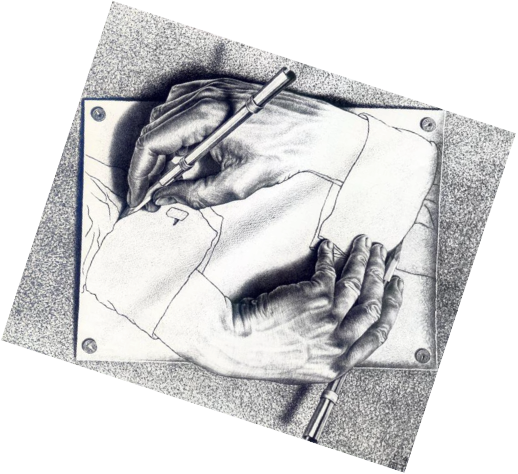 Studies in Fiction this semester will survey a range of celebrated 20th- and 21st-century
prose fictions in translation, by renowned authors from Austria, Poland, Colombia,
Argentina, India, and China. Our focus will be on their literary interest as fabulations. In these narratives, it may be that the story world and its events depart, a little
or a lot, from historical settings or realistic expectations. Or the telling of the
tale may turn back on itself to undermine its own pretense to natural verisimilitude.
These fictions may be placed in various genres, such as metamorphosis, metafiction,
magical realism, speculative fiction, and science fiction. Fabulation is a convenient
general designation that underscores the common element in these genres: Each offers
a kind of modern fable in which the resources of myth and fantasy refresh our current
ideas about the past, present, and future of the Earth, technology, or human possibility.
We will consult some basic concepts of narrative theory to gain purchase on the ways
that these fabulous fictions work.
Studies in Fiction this semester will survey a range of celebrated 20th- and 21st-century
prose fictions in translation, by renowned authors from Austria, Poland, Colombia,
Argentina, India, and China. Our focus will be on their literary interest as fabulations. In these narratives, it may be that the story world and its events depart, a little
or a lot, from historical settings or realistic expectations. Or the telling of the
tale may turn back on itself to undermine its own pretense to natural verisimilitude.
These fictions may be placed in various genres, such as metamorphosis, metafiction,
magical realism, speculative fiction, and science fiction. Fabulation is a convenient
general designation that underscores the common element in these genres: Each offers
a kind of modern fable in which the resources of myth and fantasy refresh our current
ideas about the past, present, and future of the Earth, technology, or human possibility.
We will consult some basic concepts of narrative theory to gain purchase on the ways
that these fabulous fictions work.
Texts: Franz Kafka, The Metamorphosis; Jorge Luis Borges, Labyrinths; Stanislaw Lem, Solaris; Gabriel Garcia Marquez, One Hundred Years of Solitude; Arundhati Roy, The God of Small Things; Amitav Ghosh, The Calcutta Chromosome; and Cixin Liu, The Three Body-Problem. Assignments: weekly class reports, two essays, a midterm and a final.
ENGL 4314 Studies in Nonfiction: War, Military Culture, and Nonfiction Media
Dr. Allison WhitneyMondays and Wednesdays, 3:00 - 4:20 PM
CRN: 14749 (Section 001)
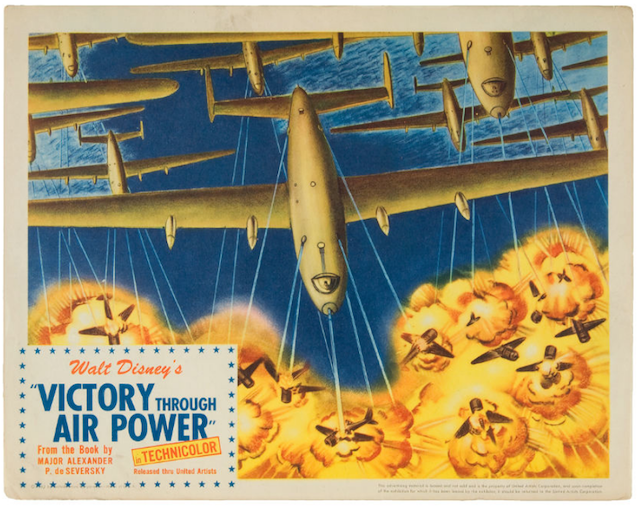 This course will explore historical and critical approaches to nonfiction film and
media centered on themes of war and military culture. In addition to studying documentaries,
we will also address non-fiction texts such as newsreels, training and recruitment
films, radio broadcasts, amateur filmmaking including soldiers' home movies, online
videos, reenactment culture, and oral histories of the role of media in military life.
We will also address the complex relationship between nonfiction narratives and their
fictional counterparts in popular culture. A component of the course will involve
students' conducting oral history interviews with military veterans about the role
of media in their careers. Students will receive training on the technical and theoretical
complexities of oral history. Students will also work closely with archivists and
resources at the Southwest Collection and the Vietnam Center and Archive to learn
about the preservation and exhibition of audio-visual history, and to make use of
archival materials in research assignments.
This course will explore historical and critical approaches to nonfiction film and
media centered on themes of war and military culture. In addition to studying documentaries,
we will also address non-fiction texts such as newsreels, training and recruitment
films, radio broadcasts, amateur filmmaking including soldiers' home movies, online
videos, reenactment culture, and oral histories of the role of media in military life.
We will also address the complex relationship between nonfiction narratives and their
fictional counterparts in popular culture. A component of the course will involve
students' conducting oral history interviews with military veterans about the role
of media in their careers. Students will receive training on the technical and theoretical
complexities of oral history. Students will also work closely with archivists and
resources at the Southwest Collection and the Vietnam Center and Archive to learn
about the preservation and exhibition of audio-visual history, and to make use of
archival materials in research assignments.
ENGL 4351 Advanced Creative Nonfiction Workshop: The Art of Play
Dr. Noam DorrTuesdays, 6:00 - 8:50 PM
CRN: 14785 (Section 003), 40756 (Section D03)
Writing is serious business, or so aspiring writers are often told. But even the most serious texts start with a creative leap, a swan dive into the unknown. This course will be all about experimenting with delight and exploring the playful. Stretching our imagination in new and unexpected ways, across the course of the semester we will: come up with rules in order to break them, travel off the page and back onto it again, borrow from the visual and performing arts in order to rethink our writing craft and practice. Through an emphasis on wonder and risk-taking students will produce serious works of writing, but the journey will be all play.
English 4360 Studies in Composition: Thinking (and Writing) about Thinking
Dr. Rebecca RicklyMondays, 6:00 - 8:50 PM
CRN: 14790 (Section 001), 37084 (Section D01)
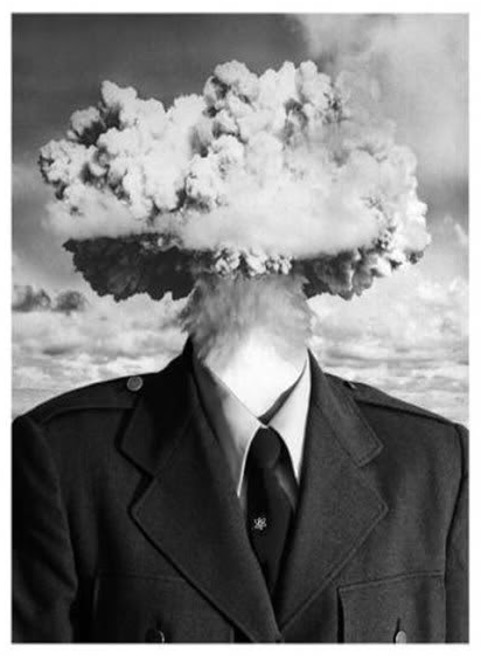 Everyone these days is talking buzzwords: Critical Thinking. Thinking Outside the Box. Growth Mindset. Twenty-first Century
Skills.
Everyone these days is talking buzzwords: Critical Thinking. Thinking Outside the Box. Growth Mindset. Twenty-first Century
Skills.
So what, exactly, does it take to communicate/think successfully today? Do you feel prepared?
We will begin (and end) our process of exploring what it means to communicate effectively by examining what we know—and what we don't know. After that, we'll be doing some hefty self-analysis. Next, we'll look at our tool box of communicating, perhaps trying to expand upon/strengthen what you're “good” at. Then we'll try our hands at something different: communicating in multiple media. Finally, we'll circle back to narrative and its importance in communication, and you'll create a narrative podcast.
Required book: Grant, Adam (2021). Think Again: The Power of Knowing What you Don't Know. Viking Press. ISBN-10: 1984878107
Department of English
-
Address
P.O. Box 43091 Lubbock, TX 79409-3091 -
Phone
806.742.2501 -
Email
english@ttu.edu


